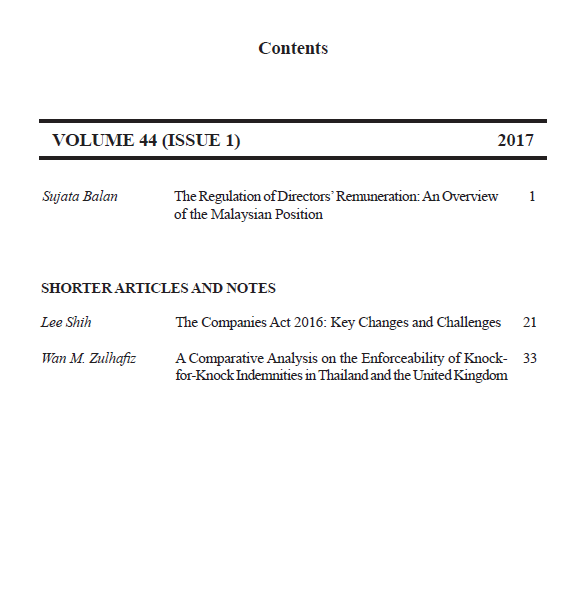A Comparative Analysis on the Enforceability of Knock-for-Knock Indemnities in Thailand and the United Kingdom
Keywords:
comparative, Enforceability, Knock-for-Knock, knock, Indemnities, Thailand, United KingdomAbstract
The standard form of oilfield service contracts, such as the Leading Oil and Gas Competitiveness (LOGIC) model, is widely used in Southeast Asia including Thailand. Under the LOGIC model form, the allocation of risk is set out by way of knock-for-knock indemnities where each party will indemnify the other for bodily injury or death of his employees and loss or damage to his property, regardless of negligence. However, under the Thai Unfair Contract Terms Act B.E. 2540 (A.D. 1997) (TUCTA), a contracting party is not allowed to restrict or exclude liabilities pertaining to bodily injury and death arising from his negligence. This restriction appears to be an attempt to hamper risk allocation in oilfield service contracts. On the other hand, the UK Unfair Contract Terms Act 1977 (UCTA) has a similar restriction. However, by virtue of the Supreme Court decision in Farstad Supply A/S v Enviroco Ltd [2011] UKSC 16, the knock-for-knock indemnities could be enforceable despite the restriction. Nevertheless, the knock-for-knock indemnities will be subject to the reasonableness test under UCTA. Thus, it could be argued that in spite of the restriction under TUCTA, the knock-for-knock indemnities in standard form oilfield service contracts e.g. LOGIC could still be enforceable in Thailand, subject to certain limitations. This note addresses the issue of enforceability of knock-for-knock indemnities pertaining to bodily injury and death in oilfield service contracts in Thailand. The methodology employed in this research will be a comparative analysis which will be carried out in a descriptive, analytic and prescriptive manner.



